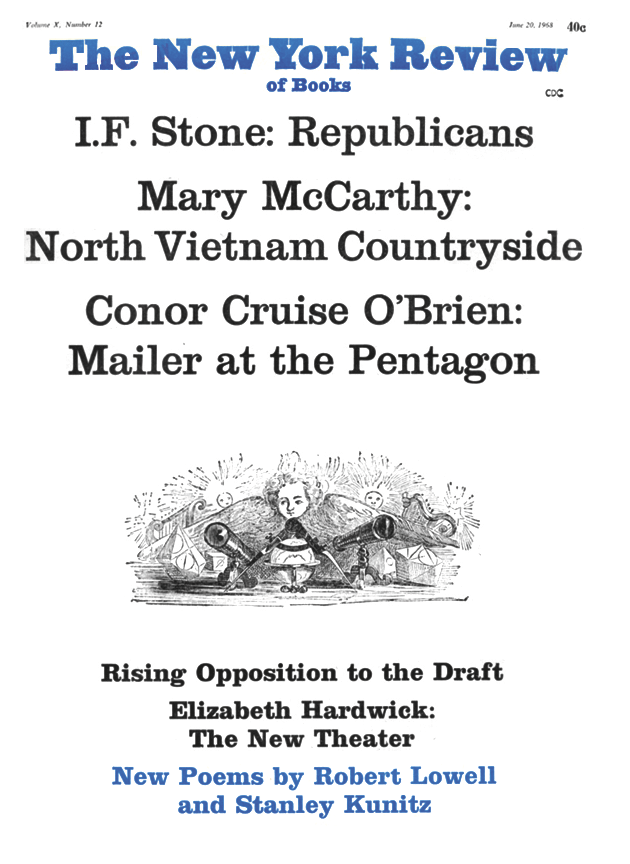In response to:
Portrait of the Artist as a Middle-Aged Adulterer from the February 29, 1968 issue
To the Editors:
In delving into James Joyce’s extramarital affairs. Matthew Hodgart assumes that Marthe Fleischmann of Zurich, like Amalia Popper of Trieste, was Jewish. Recent evidence indicates that she was quite probably not. Despite Joyce’s peculiar preoccupation and despite the adage of the song, the whole world is not necessarily Jewish when you’re in love. In writing his biography of Joyce, Richard Ellmann had access to Fräulein Fleischmann’s letters from Joyce (courtesy of Professor Heinrich Straumann), one of which intimates that Joyce believed her to be Jewish. The biography paraphrases the letter in which the speculation takes place: “She will not mind, he hopes, if he suggests that perhaps she is Jewish, though she may not be.” Ellmann makes no further allusion to her possible Jewishness. His concern is primarily with Joyce, and he relates Frank Budgen’s anecdote about the Candlemass assignation of Joyce and Marthe in Budgen’s studio on Joyce’s birthday, a tryst replete with a borrowed Chanukah candelabrum for the “occasion.”
The story is a bizarrely Joycean one, and Budgen tells it in his own voice in the winter 1967 issue of Tri-Quarterly. The same issue contains the four epistles to Marthe, which Professor Straumann reproduces along with the conclusions of his researches:
It is remarkable that Joyce first took Marthe for a Jewess. Actually her grandfather had been adopted as a homeless boy by the Swiss village community of Ueken (Aargau) in the first part of the 19th century. Whether or not he was of Jewish origin cannot be ascertained, but it is at least unlikely. Her parents and her grandparents were certainly not considered Jewish by the people of the village.
It is of course of no importance about Marthe herself, but it is significant in what we learn about Joyce himself: the degree to which he hoped that all sorts of external factors were conspiring around him to aid and abet in the creation of Ulysses then in progress.
Bernard Benstock
Department of English
Kent State University
Kent, Ohio
Matthew Hodgart replies:
I must apologize for some errors in a review of Giacomo Joyce. In assuming that Fräulein Fleischmann was Jewish I erred in good company; but I must yield to most of Richard Ellmann’s arguments. I still think, however, that the hallucinatory passage on page 15 was inserted into the notebook later than the other passages, on the grounds that the handwriting, spacing and style are all different from the rest of the MS. Even if the passage is a dream (and one of which Mr. Ellmann has now given a convincing interpretation), it seems to me likely that Joyce experienced or invented and recorded this dream no earlier than 1914, when he first thought of Ulysses, while the rest of Giacomo Joyce dates from before 1914, as Mr. Ellmann’s other evidence would indicate.
This Issue
June 20, 1968


